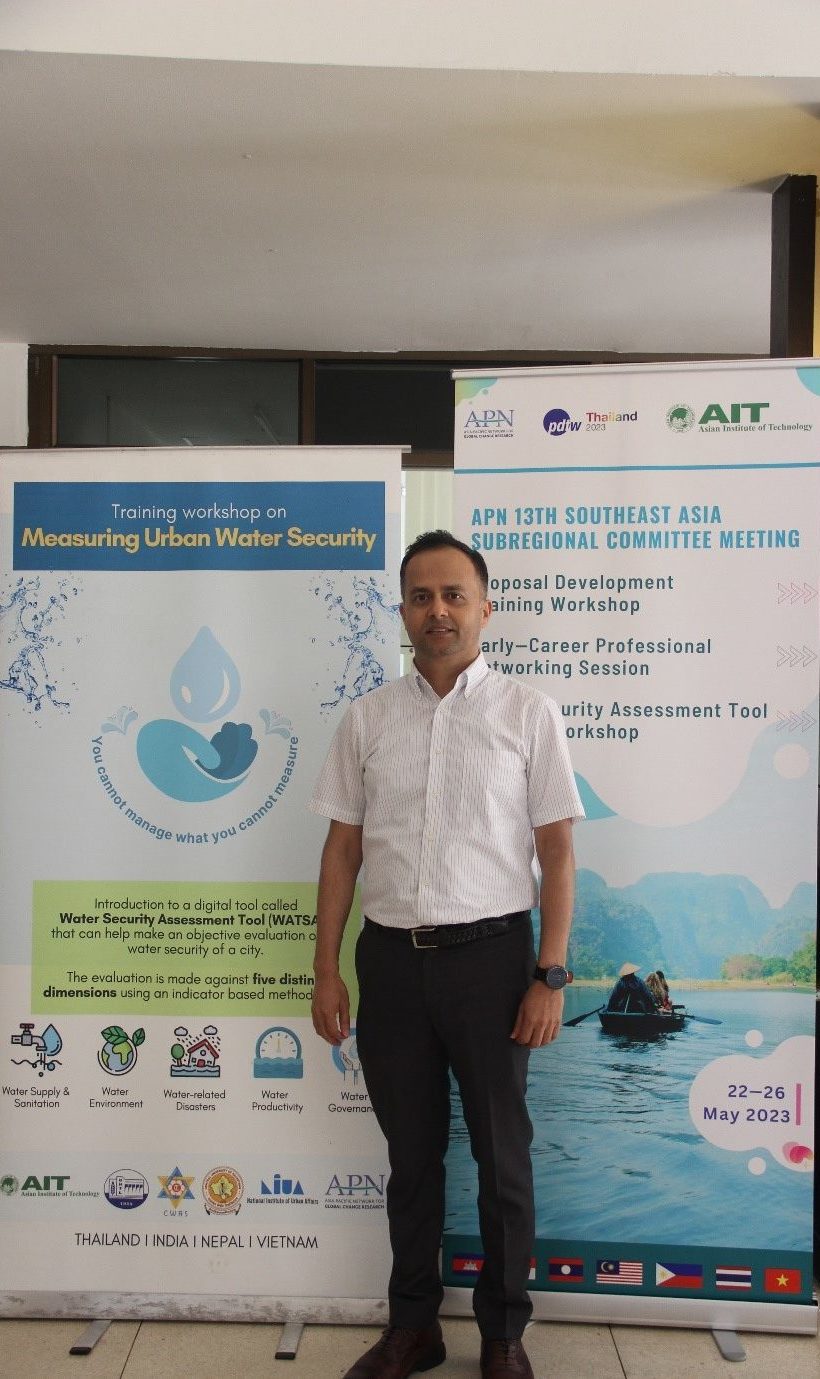
Dr. Saroj Kumar Chapagain, an Associate Programme Officer at United Nations University- Institute for Integrated Management of Material Fluxes and of Resources (UNU-FLORES), Dresden, has successfully concluded his month-long research stay at the Asian Institute of Technology (AIT), Thailand, from May 1st to May 31st, 2023. The research stay, funded by the Global Water and Climate Adaptation Centre (ABCD-Centre), aimed to foster collaboration among partners of the Centre.
One of the key outcomes of Dr. Chapagain’s research stay was the collaborative development of a joint review paper. He worked closely with Prof. Mukund Babel, Dr. Dibesh Khadka, and Prof. Daniel Karthe to draft a systematic review paper on using machine learning (ML) in drought prediction. The team developed an outline and initially screened relevant papers, categorizing them based on specific areas of ML application. The research stays also provided an invaluable opportunity for knowledge sharing and discussions on the nexus approach in integrated resource management. Dr. Chapagain emphasized the importance of the nexus approach and the need for decision support tools, such as sustainability assessment, to promote its implementation in resource planning processes.
Furthermore, Dr. Chapagain participated in a Water Security Assessment Tool (WATSAT) training workshop organized by AIT and Asia Pacific Network for Global Change Research (APN). This workshop equipped professionals in the water sector with practical skills to assess water security using WATSAT. In addition, the research stay facilitated fruitful collaborations and engagements with leading universities in Thailand, including Chulalongkorn University, Mahidol University, and Ramkhamhaeng University. Dr. Chapagain introduced the ABCD-Centre and highlighted scholarship opportunities for graduates and the potential for future collaborations.
Overall, the research stay hosted by AIT proved to be highly productive, providing an excellent platform for sharing research experiences and exploring climate change adaptation initiatives. It paved the way for developing new research topics, strengthened the partnership beyond ABCD-Centre, and opened doors for collaborations with other research centers and universities in Thailand.

